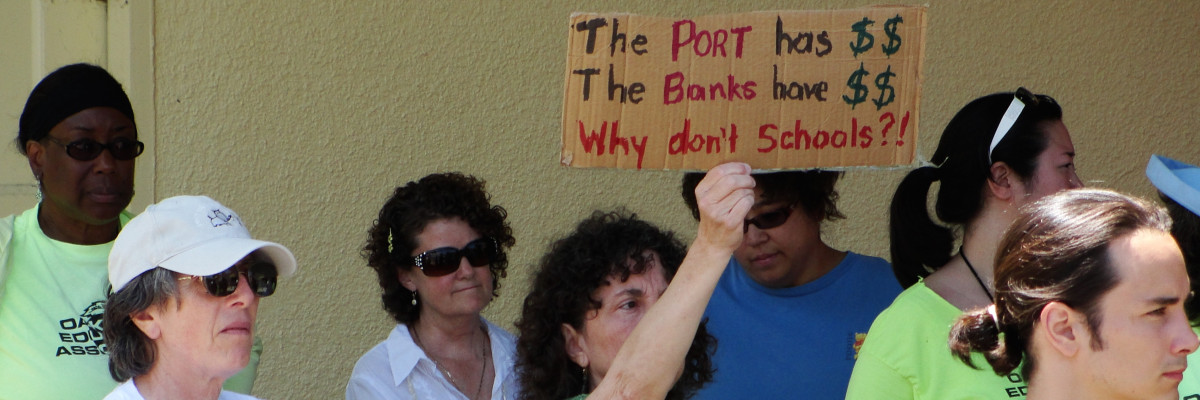My posts on the National Education Association’s 2009 Representative Assembly have focused so far on a new business item I introduced calling for a national strike for full funding a corporate expense. I should note, though, that aside from the brief time it took to squash that motion, a few other things happened during the four days of meetings attended by 9000 delegates from all over the country. Eighty-seven new business items, ten amendments to the standing rules, five amendments to bylaws, twenty-six legislative amendments, and more than a dozen resolutions were considered and voted upon. And there were still plenty of hours to spare for self-congratulatory hoopla, patriotic gushing (in addition to the lengthy Fourth of July eruption), tributes to Democratic Party politicians, and fundraising plugs for Democratic lobbyists and candidates.
Rich Gibson has written generally accurate and extremely critical reports of the 2009 RA for Substance News. His descriptions capture the sophisticated bulwark of political entrenchment evidenced at the RA by this “capitalist union operating inside capitalist schools within a capitalist nation in a profound crisis of lost wars in a ruined economy.” Indeed, anyone expecting to move this RA toward a serious fight-back against attacks on public education or working people in general—including the continuation and expansion of militarism under Obama—was in for disappointment.
Gibson does point out the a few blips of resistance that bubbled up, such as an NBI by another Oakland delegate, Tania Kappner, that NEA support public school “sanctuaries” for undocumented immigrant students and workers and resistance to immigration raids. It was ruled out of order because it “supported lawbreaking.” Another motion, introduced by Andy Griggs, of United Teachers of Los Angeles, and backed by the Peace and Justice Caucus, called for an end to wars in Iraq and Afghanistan. It was stopped cold when a delegate moved to “object to consider” and was sustained by the required two-thirds vote. (Roberts Rules allows this maneuver as a means “to avoid altogether any question which [a body] may deem irrelevant, unprofitable, or contentious.”) Gibson did not note my “out-of-order” NBI for a national teachers’ strike or a motion to send $10,000 to Honduran teachers striking against the recent coup in their country. At least the RA debated the latter proposal before voting it down. The RA did pass a few NBIs for incremental steps against charters, merit pay, and school reconstitution.
I admit to imagining once or twice that debate on proposals for labor action or opposing militarism might be allowed. At the only other RA I’d attended in 2003, my NBI to concretely support campaigns to force corporations to pay more for public education actually passed. Maybe that success inflated my hope for progress this time.
But my bottom-line goal in attending the RA was met: to find other NEA activists from around the country who support nationwide, direct action to win fully funded education at corporate expense. As it turned out several delegates sharing that view approached me, and we have agreed to in touch and discuss how to move toward that goal between now and the 2010 RA in New Orleans. This idea was not even allowed into a public debate at this year’s RA, and that’s what we must do now.
Please share your thoughts–pro, con, or in between–by commenting on this post. You can also write to me at [email protected].
Next: Taking the fight back home (California and Oakland)
